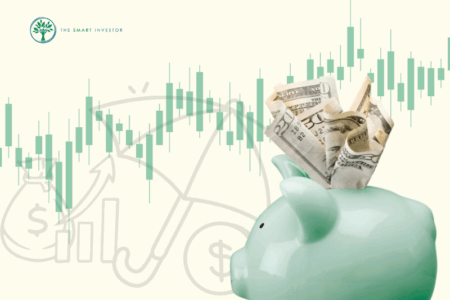Investors should realise by now that the investment landscape has altered considerably.
What used to be sacred may not seem so anymore.
The pandemic has altered supply chains, practices and habits.
Some of these will be temporary, while others may be permanent.
Things may never go back to the way they were, even after this crisis has passed.
It’s a sobering thought indeed.
Companies and businesses that thrived on crowds and footfall have now fallen on hard times.
Some have been forced to adapt and evolve their business models, while others may go bust once the government support measures dry up.
It’s a strange and scary investment world we are gazing upon today.
For income investors, their flow of dividends has been abruptly reduced to a trickle as many companies reduce or even stop their payouts.
Does it still make sense to invest for dividends? Should investors look for an alternative strategy instead?
Widespread financial damage
COVID-19 has wreaked unspeakable damage to a wide range of businesses.
The most directly impacted industries have been travel, tourism, hospitality and retail, as countries institute lockdowns and border closures.
One of the worst casualties has been Singapore Airlines Limited (SGX: C6L), which had to raise cash through a massive rights issue.
The flagship carrier also reported its first-ever full-year net loss and did not declare a final dividend.
REITs have also not been spared.
Prominent retail REITs such as Frasers Centrepoint Trust (SGX: J69U) and SPH REIT (SGX: SK6U) have slashed their distribution per unit (DPU) by 48.7% and 80%, respectively.
These sharp reductions serve to conserve cash for tenant support measures to be doled out in due course, as footfall to malls has all but disappeared due to the circuit breaker measures.
Other blue-chip companies are also suffering.
ComfortDelGro Corporation Ltd (SGX: C52), or CDG, recently reported a significant 49% year on year plunge in net profit for the first quarter of 2020, while Singapore Telecommunications Limited (SGX: Z74), or Singtel, saw its core net profit decline by 13% year on year.
As a result, Singtel slashed its final dividend by close to 50% to conserve cash and also for its impending 5G infrastructure investments.
Temporary or permanent dividend reductions
It’s important, at this point, to identify if such dividends declines are merely temporary, or if it may signal a longer-term deterioration in the business.
The difference is important as it would allow the investor to make an informed decision as to which companies make better investments during these challenging times.
For instance, footfall in malls has plunged temporarily due to circuit breaker and social distancing measures but is expected to recover, albeit slowly, once the pandemic has passed.
Dividends could also be restored to a certain extent when malls invite visitors in again.
However, for companies such as CDG or Singtel, the pertinent question to ask is whether the pandemic has permanently altered the dynamics and economics of the industry each company is in.
A deeper analysis may help the investor know whether its dividend can be restored eventually.
Adaptability and resilience
Apart from the analysis above, what we may not realise is that humans, as a whole, are adaptable and resilient.
When faced with obstacles, we find ways and means to overcome them, rather than just throwing in the towel.
Though the pandemic has brought about hardship and adversity, I believe that management teams with the right attitude and mindset will be able to overcome these challenges and emerge stronger.
It is a testament to the human spirit and a belief that continuous learning and improvement can enable us to rise above our troubles.
This is why I feel confident that well-run companies with the right business model and growth trajectory can continue to do well, even though they may face short-term stumbling blocks.
Get Smart: A dividend strategy remains sound
The truth is — an income-driven strategy is far from being irrelevant or outdated.
Some companies may temporarily reduce dividends to conserve cash during tough times but will restore them once the stress has passed.
Other companies may still be reporting healthy earnings and cash flows and can continue to pay healthy or even growing dividends.
As investors, we have to remain vigilant and observe how the investment landscape is changing.
Only then can we continue to be successful in our long-term investment strategy.
With share prices battered to multi-year lows, many attractive investment opportunities have emerged. In a special FREE report, we show you 3 stocks that we think will be suitable for our portfolio. Simply click here to scoop up your FREE copy… before the next stock market rally.
Click here to like and follow us on Facebook and here for our Telegram group.
Disclaimer: Royston Yang does not own shares in any of the companies mentioned.




